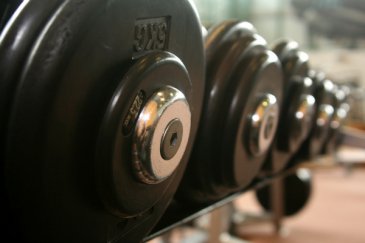New research suggests that a 20-minute resistance workout is all it takes to help lock something into your long-term memory.
A study led by the Georgia Institute of Technology in the US has found that just one short burst of weight-lifting can enhance the long-term memory of young adults by around 10 percent.
Previous research had already established the fact that exercise can improve memory, but many have focussed on regular sessions of aerobic exercise, such as running.
This new research instead looked at the effect of just one weight-lifting session, two days before a memory test. And in contrast to previous studies, the researchers asked participants to memorise information before they worked out, rather than afterwards. This was in response to recent research in animals that suggests putting the body under stress in the period after learning can help lock in memories.
To learn more about this process in humans, the researchers tested 23 healthy young adults by asking them to monitor a series of 90 random photos, but not memorise them. Afterwards all the volunteers sat on a leg resistance exercise machine - half of them did no exercise, while the rest performed 50 leg presses at the heaviest weight they could lift. The scientists chose the leg press exercise as it's low impact and could be performed by those who are out of shape or unable to run.
Two days later, the participants were shown the original images along with 90 new ones, and those who had performed leg presses after first seeing them could remember 60 percent of the old photos, whereas the control group could only recall 50 percent. Their results are published in the journal Acta Psychologica.
"Our study indicates that people don't have to dedicate large amounts of time to give their brain a boost," said Lisa Weinberg, a graduate student and the Georgie Institute of Technology who led the project, in a press release.
The researchers also tested physiological markers of the exercise group - including stress indicators in their saliva, and their blood and heart rate. Interestingly, those who were the most stressed by the short burst of exercise after learning were able to remember the original images the best. This helps the researchers to better understand the process that is helping "lock in" these memories.
"Even without doing expensive fMRI scans, our results give us an idea of what areas of the brain might be supporting these exercise-induced memory benefits," said Audrey Duarte, who was involved in the study, in a press release. "The findings are encouraging because they are consistent with rodent literature that pinpoints exactly the parts of the brain that play a role in stress-induced memory benefits caused by exercise."
The team is now looking into how exercise can help elderly people and those with memory disorders.
Find out more about the study:
Source: Georgia Institute of Technology
